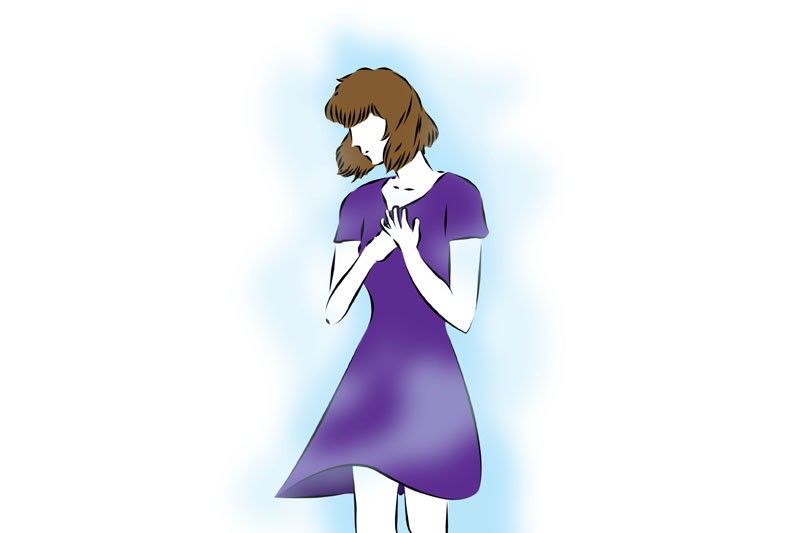Why appreciation gives you a high

A few days ago, the president of a big nationwide corporation received a prestigious award and among the five people he thanked for inspiring him was (drumroll, please)…. Me!
I nearly fell off my chair. It isn’t false modesty on my part. The four other persons he expressed appreciation for are business legends. Moguls. How I could have inspired this accomplished gentleman truly humbles me. It may be because in our talks in the midst of social gatherings, I would tell him how I valued my reputation because it is part of moral legacy my late father had left me, imperfect as I am. He also reveres his parents.
His expression of appreciation for me in his public social media posts was more than heartwarming. It was affirming. Like a second booster shot. Fortifying.
Expressions of appreciation are like booster shots, but without the sting. They have the effect of petal showers.
I appreciate it, S.T.!
***
S.T.’s expression of appreciation brings to mind the message of last Sunday’s homily of Fr. Dennis Paez, SDB, in his regular online Mass for the WWBM Prayer Warriors. Father Dennis’s homilies are so real and relatable. Succinct.
In the Gospel, Jesus healed 10 lepers. At the time, leprosy was a fate worse than death. But only one came back to Jesus to say, “Thank you.”
Father Paez said that Jesus did notice.
“He just did not move on and say, ‘Well, human beings are like that. They don’t really say thank you. I’ll just let it go.’ Jesus did not let it go. He commented about it.”
Does God expect us to be appreciative of Him? “The answer is yes. Ay, oo!” Father Dennis said.
“Appreciation is expressing admiration and approval. And it is consistently and strongly associated with greater happiness. When we receive appreciation, we feel happier. The giver and the receiver are happier. You know, one benefit of being appreciated is it gives people positive emotions. It, in fact, improves the health of the person because a person who is constantly appreciated, they sleep better,” Father Dennis said.
Father Dennis, who also does counseling, stressed, “Appreciation is even more important than encouragement.” And more powerful, too.
“No matter how difficult the work is, when we are appreciated, we are immediately energized. We remember appreciation for a long, long time.”
He went on to recall how he once refused to sing because when he was a choirboy and on the front row, the choir master would always put his forefinger over his lips and look at him (Dennis), as if to say, keep silent and just lip sync. From that time on, even until he became a priest, he refused to sing out loud. Till one day, he sang the opening hymn and nobody joined in the singing. They were all just listening. And then they told him, “Ang ganda ng boses ninyo, Father.” Guess who’s singing now?
I can relate. When I was maybe in Prep or Grade One, my music teacher made me sing in front of her and when my report card came, my grade in Music was 78! My dad was furious and befuddled. How could a child be given such a grade for the quality of her singing voice by one judge? (Even American Idol had three judges!)
Anyway, I refused to sing after that. Only “Ama Namin” and maybe “Happy Birthday.” Even the National Anthem I would only lip sync. If there was a karaoke in the room, I would avoid the mic like it were a hot potato. Up. To. Now.
I guess few will ever know if my voice indeed is a “78.” Because I simply don’t sing anymore, except in the shower. But looking back, if my teacher showed me then some appreciation for singing solo in front of her despite my “voice,” I would have been my colleague Büm D. Tenorio’s singing partner.
“The greatest power of appreciation is it makes people feel valued. That they have a worth. And because they are valued and they feel worth, it drives them to do more and better,” Father Dennis emphasized.
***
I was also a teacher once. I taught Literature to high school students for two years. I loved teaching and I loved my students. I agonized over every fraction of a grade if it was low.
Having been a teacher once upon a time still makes me feel like I’ve truly made a difference in this world, especially when some of my former students approach me and say, “Miss Mayor, I took up Journalism and Communications because of you.”
One of them even did me better by obtaining a Ph.D. in English, and she now teaches university students. And Father Dennis is right — the best part is when they make an effort to let me know how I have influenced their lives for the better.
One even recalled to me a saying I once shared with my class, and its profound impact on her life. And that saying goes, “Sometimes, you have to give up something for something you want more.” Till she reminded me of that, I had virtually forgotten it.
According to Father Dennis, gratitude is not enough. You have to express it.
“If it is not expressed, it is nothing. When we are appreciated, we know exactly where we stand as regards others. What they mean to us and what we mean to them.”
This encouragement “enables the person to have more resiliency. The ability to bounce back. We all have troubles, but when there is appreciation, kaya mag-bounce back. It reduces stress. It increases levels of happiness. It makes us feel we are not isolated and lonely and alone. How can we deprive somebody of that, of all those beautiful things?”
When does appreciation have the greatest impact?
Number one, when it is timely, says the good priest.
“Appreciation delayed is appreciation denied. Number two, it has to be personalized. It has to be specific if it is to be helpful.”
Father Dennis stressed: “And when possible, whenever possible, our appreciation must be in public.”
True. Ang sarap mapuri sa harap ng maraming tao. I remember my former student Sen. Grace Poe expressing her appreciation for me in front of a ballroom of bigwigs. I was walking on sunshine for a week.
Father Dennis said, “We are not humans of logic. We are not people of logic; we are not. We are people of emotions. And because of that we do not necessarily remember what people say or what people do. We remember what they make us feel.”
Amen, Father Dennis. Amen.
- Latest

























